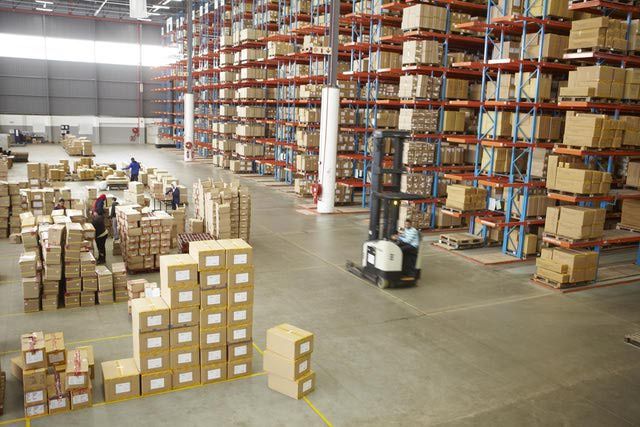Wholesale buying stands as a cornerstone in today’s dynamic business world, offering unique advantages over traditional retail purchasing. This approach is not just about buying in bulk; it’s about smarter buying that can lead to significant savings, greater product variety, and improved supply chain management. Understanding the nuances of wholesale purchasing is crucial for businesses looking to capitalize on these benefits.
Wholesale buying’s appeal extends far beyond mere volume discounts. It embodies a strategic procurement approach that enables businesses to optimize their operational efficiency and competitiveness. This method hinges on the ability to forecast demand accurately, enabling the stocking of products that meet market needs promptly. The advantages of wholesale purchasing are multifaceted and impact various aspects of business operations.
Understanding Wholesale Buying
Wholesale buying refers to the purchase of goods in large quantities, typically directly from manufacturers or distributors, at a lower price. This contrasts with retail purchasing, where products are bought in smaller quantities and usually at a higher price point. The key difference lies in the volume of the transaction and the consequent pricing strategies.
Benefits of Buying Wholesale
Beyond the immediate financial advantages, wholesale buying also enhances supply chain stability. Larger orders can ensure a consistent supply of products, reducing the risk of stock shortages and helping maintain steady business operations. This reliability is crucial for meeting customer demands and avoiding disruptions in service or production.
Moreover, wholesale purchasing can lead to stronger relationships with suppliers. Frequent, large orders often put businesses in a preferred customer category, leading to priority treatment in product availability, shipping, and customer service. This status can be particularly beneficial during peak demand periods or supply chain disruptions. Finally, buying wholesale can contribute to operational efficiency.
With a larger stock on hand, businesses can reduce the frequency and administrative burden of placing orders, thereby streamlining their procurement processes. This efficiency not only saves time but also reduces logistical challenges, contributing to smoother, more predictable operations overall.
Identifying the Right Wholesale Suppliers
A critical step in the wholesale buying process is selecting the right suppliers. This choice should be based on reliability, product quality, and the supplier’s ability to meet demand consistently. Researching and comparing different suppliers, considering their market reputation and credibility, is essential. Establishing a strong relationship with the right supplier can lead to more favorable terms and reliability in supply.
Negotiating with Suppliers
Effective negotiation is key in wholesale buying. Understanding the economies of scale and using them in negotiations can lead to better pricing and terms. It’s important to communicate clearly with suppliers and establish long-term relationships, which can result in better deals and priority service over time.
Building a strong rapport with suppliers also means being open to compromises and understanding their challenges and constraints. Demonstrating a fair, respectful, and mutually beneficial approach can pave the way for more favorable negotiations.
Additionally, staying informed about market conditions and the supplier’s business environment can provide leverage during discussions. Employing a strategic approach — like offering longer-term contracts in exchange for lower prices or better terms — can also be beneficial. Ultimately, successful negotiations hinge on a blend of good communication, mutual respect, and a clear understanding of each party’s needs and capabilities.
Quality and Compliance
Ensuring product quality and adherence to industry standards and compliance is another vital aspect of wholesale buying. Regular quality checks and vetting suppliers for compliance with industry-specific regulations are necessary to maintain standards and protect the business’s reputation.
Managing Logistics and Inventory
Proper inventory management and efficient logistics are vital in wholesale buying. Buying in bulk means dealing with larger quantities of stock, which requires an effective system for storage, management, and tracking. Businesses must balance having enough stock to meet customer demand while avoiding excessive inventory that can tie up capital.
Legal and Ethical Considerations
Navigating the legalities of contracts and understanding ethical sourcing are important. This includes being aware of and complying with the laws and regulations governing wholesale transactions, and ensuring suppliers adhere to ethical practices, especially in terms of labor and environmental standards.
Leveraging Technology in Wholesale Purchasing
Incorporating technology can streamline the wholesale buying process. Digital platforms and e-commerce have revolutionized how businesses purchase wholesale, offering tools for easier supplier comparison, online order management, and tracking. Embracing these technologies can lead to more efficient operations and better decision-making.
Adopting advanced technology in wholesale purchasing also opens doors to better data analysis and forecasting. With real-time data on market trends, customer preferences, and inventory levels, businesses can make more informed decisions, forecast future demand more accurately, and optimize their inventory accordingly.
Furthermore, technology like AI and machine learning can help in predicting market shifts, thereby allowing businesses to adjust their strategies proactively. Integrating these technological solutions not only improves operational efficiency but also enhances customer satisfaction through more responsive service and better product availability.
Conclusion
Mastering the art of wholesale buying is an intricate but highly rewarding endeavor for businesses. It demands a deep understanding of market trends, meticulous selection of suppliers, efficient logistics management, and the strategic use of technology.
Embracing this approach can significantly bolster a company’s bottom line, foster durable supplier partnerships, and spur on overall business growth and resilience.
For those aiming to refine their purchasing strategies and maximize the benefits of bulk buying, the journey towards wholesale mastery is well worth the effort. Explore the possibilities with business.emechmart, your reliable partner in navigating the complexities of wholesale procurement.




